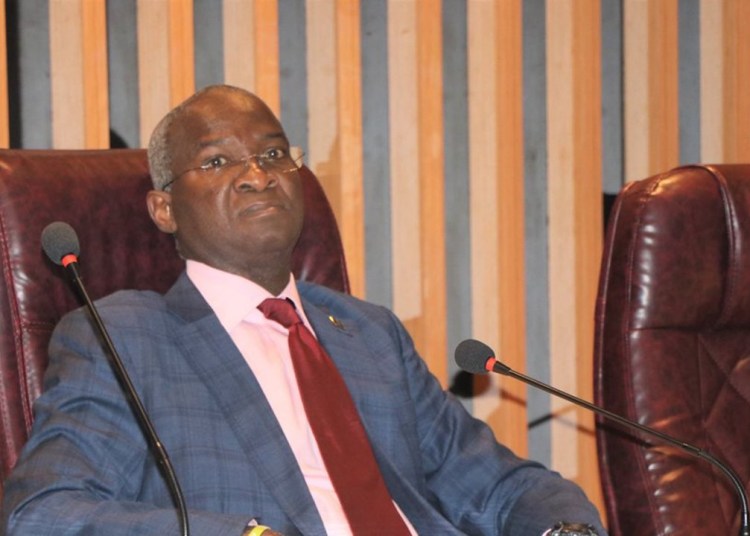Experts in the Real Estate Sector have predicted huge improvement in the sector this year.
They anticipate opportunities, high demand and stable real estate growth, which is projected at 2.9 per cent.
They say, while the economy remained weak, demographic fundamentals are strong, this is in defiance of the lack of clear policy in 2021, which impacted prospective homeowners’ access to mortgage financing in the housing markets.
Notably, interest rates were on the rise, further reducing buying capacity and eroding interest in long-term funds for property developments and purchases.
Statistics show that the real estate sector posted 3.85 per cent growth in the second quarter of 2021, representing its highest growth in six years. In the third quarter of 2021, the sector expanded by 10 per cent, despite the harsh economy and the rising cost of building materials.
The chief executive officer, Knight Frank Nigeria, Mr. Frank Okosun, “The year portends plenty opportunities for the real estate sector as there will be continuous growth in the sector.
“Investments will continue across all property types particularly for residential, healthcare and industrial (data centers) developments. This should increase the sector’s contribution to the nation’s Gross Domestic Product (GDP) and the economy at large.”
He advised the government to stick to policy formation and provide enabling environment to investors in the real estate sector.
“Across the real estate value chain, the government should be intentional in allowing partnerships with developers to access land and finance for affordable housing developments and job creation,” Okosun said.
For the Managing Partner, Ubosi Eleh and Company, Mr. Chudi Ubosi said, “Real estate will be stable with signs of growth. The COVID-19 pandemic is receding from all intents and purposes, which mean it will cause people to take more risk and do more business.
“More business, more risk mean demand for real estate – offices, residencies, warehouses and hospitality. It may not necessarily be a boom but the indices point upwards.”
Ubosi called for the of review the Land Use Act (LUA) to make it a more relevant document in tune with the needs and aspirations of Nigerians. “Right now, the LUA is a dampener to real investment. Secondly, the government needs to spend more on infrastructure, such as access roads linking towns and cities, rail lines that will ease commuting and make life easier as well as invest much more insecurity.”
The President of, Nigerian Institute of Architects (NIA), Enyi Ben-Eboh, said: “There will be heightened uncertainty because a lot of investors are not expected to invest in anything yet until they know what the political situation is. We don’t expect much in terms of activity in the housing sector.
Ben-Eboh further said: “A lot of money may also be hoarded by politicians and they would want to channel the money for campaigns/elections and so it’s going to be a tough year for the profession and construction industry. Yet, there will be a few people in the private sector, who want to carry on with developments. I want to hope that the economy will recover much faster than it had in the years before.”
According to him, there will be little of governance and more of politicking, as well as, less attention to policies that are geared at economy recovering fast. However, we hope for the best, prepare for the worst.
The Housing Development Advocacy Network (HDAN) predicts that the general outlook for the sector is bright, especially given its performance in the previous year where it recorded growth of 2.3 per cent as against 1.9 per cent. It predicts a 2.9 per cent growth this year.
A board member of HDAN, Femi Oyedele, who was a guest at the HDAN Real estate Outlook 2022 virtual meeting, attributed the growth to a number of factors, including the Central Bank of Nigeria (CBN) real estate support programme, enabling environment and others.
“The growth recorded in 2021 will be sustained and don’t also forget that we are entering into electioneering period.
“Lagos state government is also doing so much and Federal Capital Territory (FCT) is also talking about the land swap and if this is properly executed, it will have a great impact on the sector in the year 2022.”Oyedele, who is an estate surveyor and valuer, said: “Generally, it is expected that things will greatly look up and politicians are able to find solutions to the insecurity challenges in the country, especially ahead of the 2023 general elections.
“We are very optimistic that 2022 would be much peaceful and with that, diaspora’s and foreign investors would be attracted to the sector.”
Source : Leadership
























![Green Building Materials Market Trends [2023-2030]](https://housingcable.ng/wp-content/uploads/2022/04/csrgreen-building_Cisco_04222022-218x150.png)







